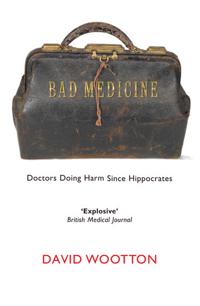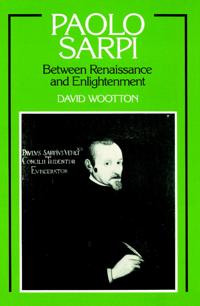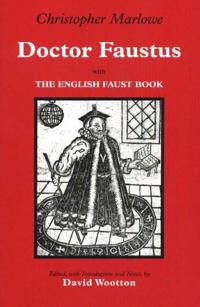Bad Medicine (Häftad)
avDavid Wootton
ISBN: 9780199212798 - UTGIVEN: 200711Just how much good has medicine done over the years? And how much damage does it continue to do? The history of medicine begins with Hippocrates in the fifth century BC. Yet until the invention of antibiotics in the 1930s doctors, in general, did their patients more harm than good. In this fascinati[...]
Galileo (Inbunden)
avDavid Wootton
ISBN: 9780300125368 - UTGIVEN: 2010-11Galileo (1564-1642) is one of the most important and controversial figures in the history of science. A hero of modern science and key to its birth, he was also a deeply divided man: a scholar committed to the establishment of scientific truth yet forced to concede the importance of faith, and a bri[...]
Paolo Sarpi (Häftad)
avDavid Wootton
ISBN: 9780521892346 - UTGIVEN: 200204Paolo Sarpi (1552â1623) is remembered as the defender of Venice against the Papal Interdict of 1606 and as the first, and greatest, historian of the Counter-Reformation. The sources of his undoubted hostility to clerical authority have always been a matter of controversy; many contemporaries cl[...]
Doctor Faustus (Inbunden)
avChristopher Marlowe, David Wootton, Christopher Marlowe
ISBN: 9780872207301 - UTGIVEN: 200503This edition of the 'A' text, with supporting documents that include selections from The English Life of Faustus, contemporary testimonies to Marlowe's 'atheism', and passages from the 'B' text, offers a startling new context in which to understand this play, its comedy, and its tawdry representatio[...]
Divine Right and Democracy (Inbunden)
avDavid (EDT) Wootton
ISBN: 9780872206540 - UTGIVEN: 2003-05An anthology of political thought drawn from England's 'century of revolution' that focuses on the writings of those English theorists, essayists, speech writers, tract writers, and pamphleteers to whom Hobbes and Locke were immediately responding in their respective masterpieces of political theory[...]








